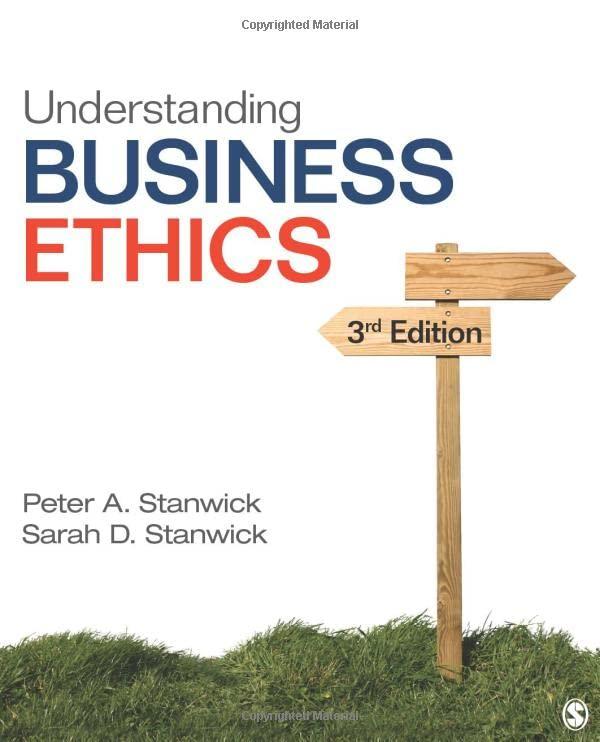Question
Melody O'Neil was born to dance. Her mother enrolled her in ballet at the age of 4. When Melody was 6, she began Irish dance
Melody O'Neil was born to dance. Her mother enrolled her in ballet at the age of 4. When Melody was 6, she began Irish dance lessons at the insistence of her grandmother who emigrated from Ireland when she was a girl. Melody instantly fell in love with everything about Irish dance: the steps, the music, the incessant practice, and the close connection it had with her family's ancestry. Melody also proved to be a very good dancer, winning local competitions and being featured in several recitals.
Dance lessons, costumes, and wigs were expensive. So were the entry fees and travel costs associated with competitions. Her mother began working a second, part-time job to help pay for private lessons in addition to group instruction. Her father spent weekends remodeling the family's basement into a dance studio so Melody could practice at home. Melody's younger sisters often were carted to Melody's practices, recitals, and competitions. Melody's room was decorated with Irish paraphernalia, recital brochures, ribbons, and trophies.
Now 15, Melody auditioned for a spot in the best Irish dance company in the region. Although it would place an even greater burden on her family, her parents agreed that if she was going to achieve success as a professional dancer, she needed to be trained by the best instructors. During the audition, Melody gave it her all. Her mother commented afterward, "You danced beautifullythe best I have ever seen you dance. I'm sure you'll get a spot."
Melody's mother was wrong. She was not selected for a spot. The leader of the dance company commented, "Melody is a good dancer, but she doesn't have the skills that we expect from a girl her age."
Melody took the news hard, but not as hard as her parents. Although they did not say so, their actions indicated that they began to regret the sacrifices they made for Melody. Melody's mother quit her second job and cut back on the extra lessons and special recitals for Melody. Both parents seemed to spend more time with the other children in the family. Her dad began coaching one daughter's basketball team; her mother volunteered to lead the other daughter's Girl Scout troop. Melody began to feel less "special" than before and she hated it.
One year later, Melody was referred to counseling after attempting suicide. The police report indicated that she had tried to kill herself by mixing alcohol and her mother's antidepressant medication. Luckily, her younger sister discovered her lying unconscious in her bedroom, and Melody was able to receive medical treatment. The physician who treated Melody also noticed superficial cuts on her thighs that were likely self-inflicted.
During an interview with a psychologist at the hospital, Melody admitted to severe depression and suicidal ideation with intent to die. "No one loves me anymore," she reported. "My mom and dad sacrificed so much for meall for nothing. I tried my best, but my best just wasn't good enough. I was a big fish doing well in a small pond, but I couldn't advance beyond that."
For a long while, Melody sobbed into her arm. She added, "My family will be better off without me. They can spend more time with my sisters. Maybetheycan make something of themselves."
Discussion Questions
- Use the hopelessness theory of suicide to explain the possible causes of Melody's suicidal behavior.
- Use the interpersonal-psychological theory of suicide to explain the possible causes of Melody's suicidal behavior.
- Imagine that you are the psychologist at the hospital who interviews Melody. After Melody stays in the hospital overnight, you decide that she can return home under her parents' supervision. What three components might you include in a safety plan for Melody?
- Melody's physician prescribes the antidepressant medication Prozac. Her parents are concerned that Prozac could be dangerous for Melody because it might increase her likelihood of suicide. Based on the research data, are her parents' worries justified?
- How might a therapist use dialectical behavior therapy to help Melody?
Step by Step Solution
There are 3 Steps involved in it
Step: 1

Get Instant Access with AI-Powered Solutions
See step-by-step solutions with expert insights and AI powered tools for academic success
Step: 2

Step: 3

Ace Your Homework with AI
Get the answers you need in no time with our AI-driven, step-by-step assistance
Get Started


